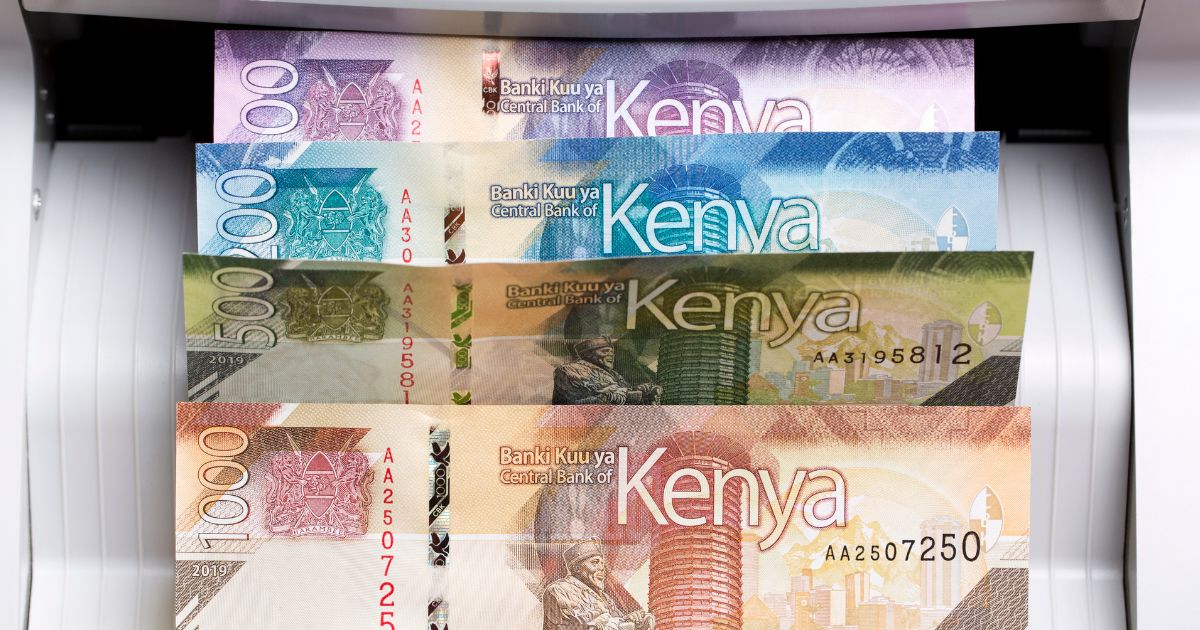- Money254 Money Weekly
- Posts
- IMF Questions Shilling Stability, Treasury Explains Ksh1.1B Extra Fine Paid to French Company
IMF Questions Shilling Stability, Treasury Explains Ksh1.1B Extra Fine Paid to French Company
IMF questions the stability of the shilling after the exchange rate maintains at Ksh129 for almost a year. Treasury explains why it paid French firms Ksh7.3 billion instead of Ksh6.2 billion for canceling Nairobi-Mau Summit Highway deal. SHA announces 212 permanent and pensionable jobs. All this and more in today’s Money Weekly newsletter. But first, a closer look at IMF’s concerns over the shilling’s stability

Hello and welcome to the Money Weekly Newsletter, where we cover the IMF’s concerns over the stability of the shilling.
But first, a word from our sponsoring partner, Jackfruit Finance.
Sponsored Content
Are you a private school owner in need of a school bus?
Our partner, Jackfruit Finance is pioneering a financing solution that is exclusively designed for schools.
With Jackfruit Finance, you can get up to Ksh9 Million in just 48 hours to upgrade your facilities or acquire assets such as a school bus. All this at friendly terms that understand your unique cash flows.
If interested to learn more, check out the Jackfruit Project & Asset Loan today and see how fast you can grow.
IMF Questions Shilling Stability
The International Monetary Fund (IMF) has expressed concern over the stability of the shilling, given that it has there have been minimal changes in the exchange rate for months.
Reports indicate that the stability of the local currency was among the discussion points during the recent country visit by IMF officials. According to the revelations, the IMF views the shilling to be too stable.
The exchange has been maintained at Ksh129 for almost the whole year.
As a result, there had been suggestions that the Central Bank of Kenya could be intervening with the exchange rate.
The Central Bank has, however, defended its stance, saying the shilling’s prolonged hold near Ksh129 to the dollar is backed by strong fundamentals.
At the start of the year, CBK Governor Kamau Thugge noted that factors such as improved diaspora remittances have helped stabilize the shilling.
"The Kenya shilling has remained stable, supported by diversified foreign exchange inflows from diaspora remittances, horticulture, tea exports, and offshore banks as well as confidence in the economy, particularly with the recent upgrade of Kenya's credit rating by S&P Global Ratings," he stated.
"The expectation is that the stability will continue given momentum in the balance of payments and the narrowing of the current account deficit."
A stable shilling is beneficial to the economy because it reduces the cost of importing goods and raw materials for businesses, helping them manage expenses more predictably. It also helps ease inflationary pressure, as a stronger currency prevents sharp increases in the prices of fuel, food, and other essential imports that affect the cost of living.
However, a stronger shilling can weaken Kenya’s export competitiveness, since Kenyan products become more expensive in international markets compared to those from countries with weaker currencies.
As a result, local companies that rely heavily on foreign customers may experience reduced export revenues and lower earnings from international markets.
Why this matters now: Kenya is negotiating a new IMF loan program after prematurely terminating the previous arrangement in March (leaving Ksh110 billion undisbursed). IMF's exchange rate concerns will be crucial in these discussions.
Here is a quick recap of the top money news for the week:
Treasury Explains Ksh1.1B Extra Fine Paid to French Company
The Treasury’s Public Private Partnership (PPP) Directorate reports that Kenya paid a Ksh7.315 billion fine to a consortium that had been contracted to undertake the Nairobi- Mau Summit Road in 2020 following the cancellation of the deal. However, a separate Parliamentary document showed that only Ksh6.2 billion was paid out.
In response to the extra Ksh1.1 billion, the Director-General of the PPP Directorate, Kefa Seda, explained that the difference was due to the exchange rate and tax equalization. The government canceled the 2020 tender owing to high project costs. The tender is now set to be awarded to a consortium led by China Road and Bridge Corporation (CRBC), in partnership with the National Social Security Fund (NSSF).
Catch Up on More News
WEEKLY MONEY TIPS
MONEY254 #MONEYTOK
Nairobi–Nakuru Highway Toll Fees Nearly Double in Chinese Contract
The Nairobi–Mau Summit Highway project has been revived under a new deal led by a Chinese company and NSSF after the earlier agreement with a French consortium was canceled over high costs. The project, valued at about Ksh191 billion, will now see motorists pay more in the new deal compared to the defunct one, with small car drivers expected to pay around Ksh1,400 from Nairobi to Mau Summit, nearly double the earlier rate.
The new consortium aims to complete the road in two years, faster than the three and a half years proposed before. The government says the new deal is fairer since revenue risks will be shared instead of being passed to taxpayers. NSSF is investing up to Ksh25 billion for a 30-year stake, with the road projected to generate about Ksh630 billion in toll collections. Watch this video to discover more.
@money254hq 𝐍𝐚𝐢𝐫𝐨𝐛𝐢-𝐍𝐚𝐤𝐮𝐫𝐮 𝐇𝐢𝐠𝐡𝐰𝐚𝐲 𝐓𝐨𝐥𝐥 𝐅𝐞𝐞𝐬 𝐍𝐞𝐚𝐫𝐥𝐲 𝐃𝐨𝐮𝐛𝐥𝐞 𝐢𝐧 𝐂𝐡𝐢𝐧𝐞𝐬𝐞 𝐂𝐨𝐧𝐭𝐫𝐚𝐜𝐭 The Nairobi–Mau Summit Highway project has been revived under a new dea... See more
That’s a wrap for this week’s Money Weekly!
Remember that we can help you compare over 300 loans, savings accounts, current accounts, and more on our website if you’re thinking about your next product.
❤️ Share with a friend
Thanks for reading. If you liked this week’s Wallet Wellness email, we’d love for you to share it with a friend.
If this email was forwarded to you, you can subscribe here.



.jpg)


.jpg)

%20(1).jpg)